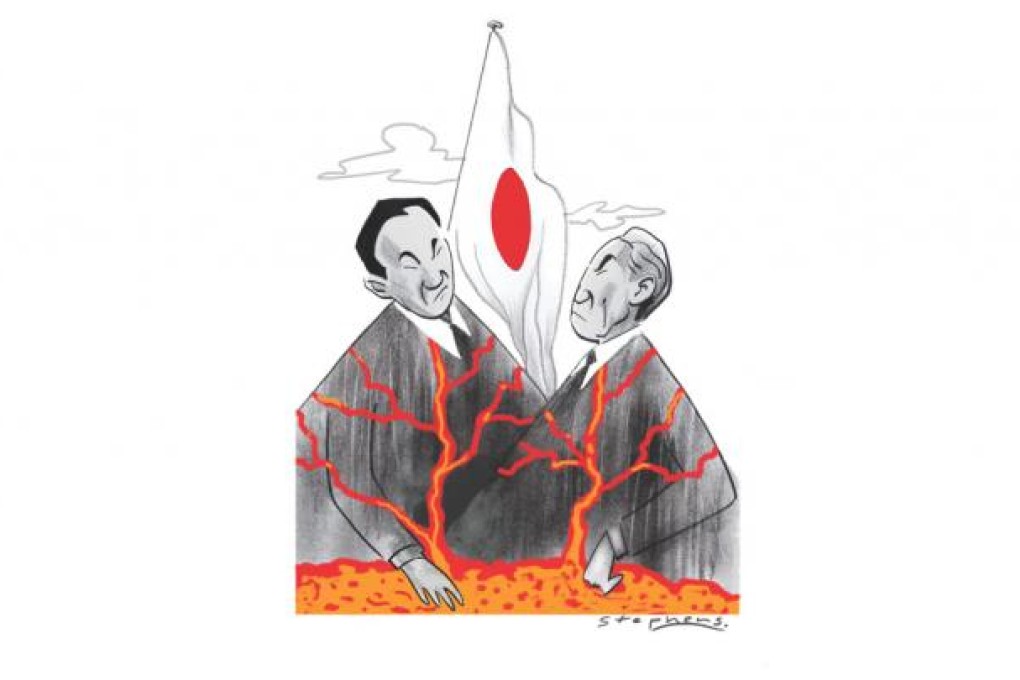Japan's fault lines still a worry, two years after quake
Philip Cunningham says two years after the devastating earthquake, the worry in Japan over the next big one mirrors the unease in its volatile politics, now in the control of right-wing demagogues

Japan is in a cold burn now; cool on the exterior, simmering underneath. It's obvious in a geological sense; Japan sits above an unstable hot zone, but it's also a metaphor for a seemingly stable but deeply volatile and incendiary political system.
Take Mount Fuji, for example. It is quintessential Japan; its understated majesty is the Yamato essence writ large. Graceful in contour, shimmering slopes, peak powdered white, clean and wind-swept by clouds, it is in harmony with forest and field, it is self-contained and tranquil - except when it's not.
Mount Fuji last exploded in 1707. Now scientists are saying the current magma pressure levels exceed the parameters of the last cataclysmic blast. Small earthquakes rock the foundation of the mountain, while steam pressure is rising.
The second anniversary of the March 11 triple disaster of mega-earthquake, tsunami and nuclear meltdown is a good time to reflect on how shocks delivered by nature can alter the course of history, especially since geologists say the big one is overdue and yet to come.
Before disaster struck, Japan was on a much-needed path to political reform after decades of cronyism and one-party rule. The Democratic Party of Japan was led by the straight-talking Naoto Kan, who first made a name for himself when, as health minister, he apologised for the previous administration's malfeasance in the scandal of HIV-tainted blood. As prime minister, he had the political courage to call for higher taxes - unpalatable but necessary medicine - and he offered Korea an apology for Japan's annexation and predations dating from the century before. With such an agenda, it comes as no surprise that Japan's stalwart right wing was gunning for his political demise. Right-wing hotheads in Japan's coastguard almost single-handedly succeeded in creating a crisis with China in 2010, putting the premier in the hot seat due to the pre-emptive arrest of a Chinese fishing boat captain whose boat had collided with a Japanese patrol boat in the disputed island area. But wiser heads prevailed.
The day after the giant earthquake, the hapless Kan flew to Fukushima to examine the damage and find out what was really going on from the information-inhibiting, politically connected nuclear industry. Again he showed uncommon courage in trying to uncover the cover-up, though he was vilified for suggesting that Tokyo might be at risk, which it was.
His subsequent condemnation of nuclear power and proposed freeze on building new plants, along with the closure of plants deemed at risk, sealed his political fate; he was blamed for post-earthquake malaise and vilified by the old right-wing aristocrats who efficiently exploited the "geopolitical" crisis to plot a comeback.